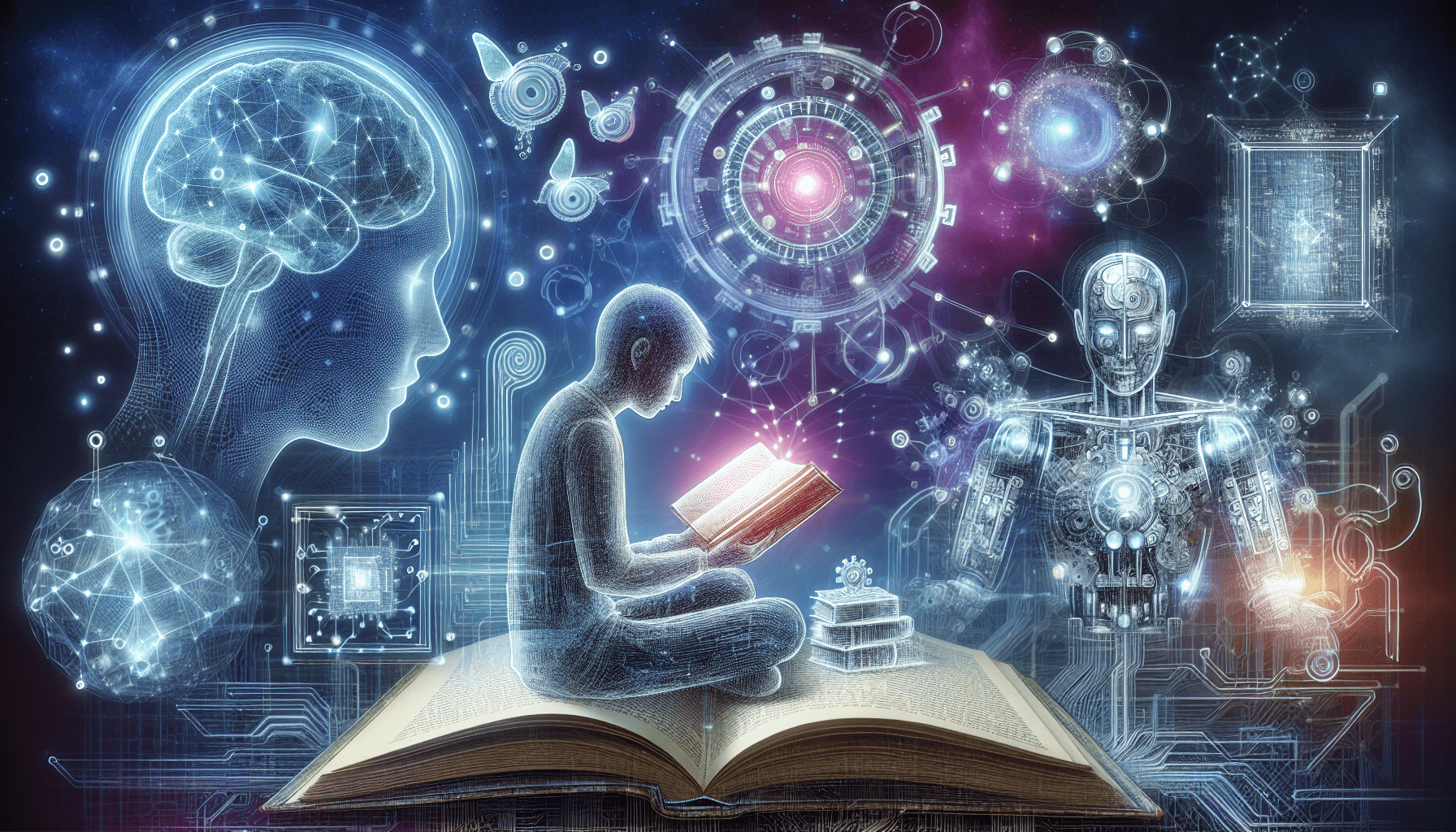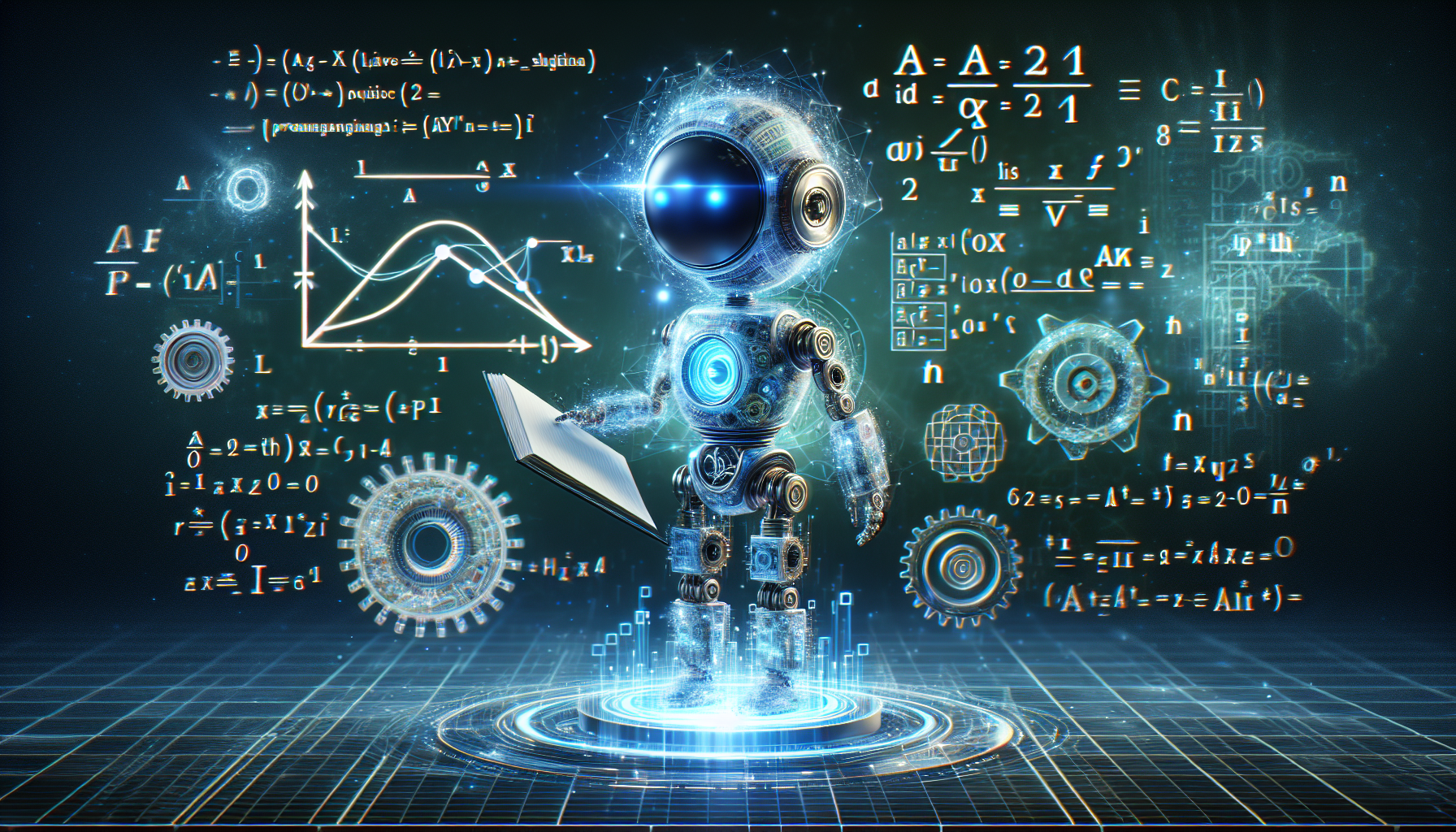The age of AI has made being a lifelong learner not just advantageous, but essential. This article unpacks the power of continuous education in a time where artificial intelligence is rapidly altering how we work and live, emphasizing the power of being a lifelong learner in the age of AI. Learn how keeping pace with AI through lifelong learning can elevate your career and personal endeavors, and discover strategies to effectively harness the ongoing technological revolution for your growth.
Key Takeaways
- Embrace lifelong learning as a crucial strategy to stay competitive and adapt to the rapid changes in the AI-driven landscape, enabling continuous personal and professional growth.
- Acquire essential AI skills, such as programming languages, statistical knowledge, machine learning, and NLP, to unlock new opportunities and be part of shaping the technological future.
- Utilize online learning platforms, engage with AI communities, set realistic goals, and track progress to effectively navigate lifelong learning and benefit from enhanced career prospects and personal development.
The Intersection of Lifelong Learning and AI


The digital age has positioned us in a unique era, where the only constant is change, and standing still is not an option. In this ever-evolving world, the ability to learn, unlearn, and relearn is not just a luxury but a necessity for survival and success. Lifelong learning is the key to staying relevant and competitive in this rapidly changing landscape. It is about embracing change, seeking new challenges, and constantly growing and adapting.
In the midst of this change, AI stands as a transformative force, shaping the future of learning. It’s driving the evolution from static, one-size-fits-all learning experiences to dynamic, personalized learning journeys that adapt to individual needs and pace. The potential of AI in enabling learners to adapt to AI-driven changes is significant. It offers the promise of making the learning process more efficient, engaging, and effective, paving the way for a new era of learning that is personalized, interactive, and immersive.
The role of lifelong learners in the AI industry
Lifelong learners serve as key contributors in the AI industry. Their roles include:
- Innovative thinking
- Fresh perspectives
- Unwavering quest for knowledge
- Propelling the development of advanced AI solutions
- Not just consumers of knowledge but also creators and disseminators
- Challenging the status quo
- Pushing boundaries
- Inspiring others to do the same
Contributions of lifelong learners to the AI industry are manifold. They:
- Educate others on AI subjects
- Write research papers
- Lead in thought and develop forward-thinking solutions
- Figure out novel applications of AI
- Devise ingenious machine learning algorithms
- Constantly push the limits of what AI can do
They are the change-makers, the innovators, the trailblazers who are shaping the future of the AI industry.
Enabling learners to adapt to AI-driven changes
The incorporation of artificial intelligence into lifelong learning presents a mix of opportunities and challenges. On one hand, it offers the potential to revolutionize learning by tailoring learning experiences to individual needs and preferences. On the other hand, it raises questions about data privacy, algorithmic bias, and the role of human educators in the era of autonomous learning platforms.
Learners’ adaptation to these changes is facilitated by AI technologies. They offer a shift from static curricula to adaptive learning experiences that are continually updated to reflect advances in technology and industry needs. AI technologies contribute to lifelong learning by identifying relevant training opportunities, monitoring learner progress, and suggesting alignment with current industry-specific expertise and trends. By doing so, they help learners stay ahead of the curve and navigate the rapidly changing landscape of AI.
Essential AI Skills for Lifelong Learners


The ongoing AI revolution sweeping the world has led to a soaring demand for AI skills. Whether you’re a seasoned AI professional or a beginner looking to break into the field, acquiring essential AI skills is critical. It’s the key that unlocks a world of opportunities, from exciting career prospects to the chance to be part of shaping the future of technology.
Essential skills for AI professionals include:
- Expertise in programming languages such as Python, R, Java, C++, and Julia
- Advanced mathematical abilities, including a solid foundation in linear algebra, statistics, and probability
- Mastery of machine learning and deep learning
These critical thinking skills are crucial for the development and implementation of AI algorithms, as well as creating systems that learn from data and solve complex problems.
Furthermore, strong problem-solving abilities, familiarity with AI libraries and frameworks, and up-to-date knowledge in specialized AI skills like computer vision are integral for success in the AI landscape.
Machine Learning and Deep Learning
Machine learning and deep learning form the cornerstone of AI. These technologies enable systems to learn from data, identify patterns, and make decisions with minimal human intervention. Neural networks, which mimic the human brain’s learning process, serve as a pivotal tool in AI, enabling the creation of systems that can make complex decisions.
Deep learning, which utilizes multiple layers of neural networks, can deliver improved outcomes but necessitates more extensive training of the algorithms. Machine learning algorithms, including unsupervised learning, are essential for identifying images and analyzing large data sets, which are fundamental functions in the field of natural language processing.
In essence, mastering machine learning and deep learning opens the door to a whole new world of possibilities, from creating intelligent virtual assistants to developing autonomous vehicles.
Natural Language Processing
Communication holds a significant place in the sphere of AI. This is where Natural Language Processing (NLP) comes into play. NLP is essential in the development of AI systems for understanding and interacting with human language. It’s the technology behind:
- the chatbots you interact with on websites
- the voice-activated assistants you use daily
- the AI-powered tools that help businesses analyze customer sentiment from social media comments.
Expertise in NLP is vital for the development of various applications, ranging from chatbots to voice-activated devices, which necessitate interaction with human language. Moreover, continuous learning in the field of NLP is necessary to adapt to the evolving complexities and subtleties of human communication. As language is continuously evolving, so too must the AI systems that interact with it. This is where lifelong learning becomes critical, enabling AI professionals to:
- Keep pace with the rapid advancements in NLP
- Stay updated with the latest techniques and algorithms
- Enhance their understanding of language patterns and structures
- Improve the performance and accuracy of NLP models
By investing in lifelong learning, AI professionals can ensure that they are equipped with the necessary skills and knowledge to tackle the challenges of NLP in the ever-changing landscape of technology.
Data Analysis and Big Data
In the era of AI, data has become as valuable as oil. And just like oil, data needs to be refined to extract its true value. This is where data analysis and big data come into play. AI-powered learning platforms use predictive algorithms to:
- Assess and anticipate individual learning needs
- Identify potential skills shortages
- Deliver real-time feedback and analytics
- Customize reskilling programs to meet the unique needs of each learner
These platforms leverage machine learning algorithms to analyze data, identify patterns, and make predictions. They can, for example, suggest courses or learning paths that are most relevant to a learner’s goals, interests, or career aspirations. By harnessing the power of data analysis and big data, AI is revolutionizing lifelong learning, making it more personalized, efficient, and effective.
Strategies for Lifelong Learning in the Age of AI


The further we proceed into the AI era, the more significant lifelong learning becomes. But how does one effectively navigate lifelong learning in this digital age? It involves:
- Embracing healthy habits
- Practicing effective time management
- Prioritizing self-care
- Setting specific learning goals
All of these elements are crucial building blocks in the lifelong learning journey.
Moreover, taking ownership of personal goals and aspirations is integral to the pursuit of lifelong learning. It’s about being proactive about one’s future and steering the learning journey in a direction that aligns with one’s interests and career aspirations. Technology plays a crucial role in this journey, enabling self-directed learning tailored to individual interests and goals. It facilitates global connectivity and cross-cultural understanding, enriching the overall learning experience.
Embracing online learning platforms
Embracing online learning platforms stands as one of the most effective strategies for lifelong learning in the AI era. These platforms are revolutionizing lifelong learning by offering:
- Dynamic access to education outside conventional classroom environments
- Breaking down traditional barriers of geography and physical presence
- No longer are learners bound by the confines of a physical classroom or limited by the pace of their peers
- Instead, they can learn at their own pace, anytime, anywhere.
In addition to offering flexible learning opportunities, online platforms make lifelong learning more financially accessible, challenging the expense associated with traditional educational settings. They provide personalized coaching and the ability to set and monitor learning goals, helping to streamline education into the learner’s lifestyle. Institutions such as MIT, USAII, ARTIBA, IBM, and Google offer a spectrum of professional certifications and courses for those interested in transitioning careers into the burgeoning AI field. All these factors combined make online learning platforms a powerful tool for lifelong learning in the age of AI.
Participating in AI communities and events
Another effective lifelong learning strategy in the AI era involves active participation in AI communities and events. Networking within the AI community can lead to opportunities for mentorships, collaborative projects, and staying updated on the latest AI trends. It’s like being part of a vibrant ecosystem that’s always buzzing with new ideas, innovations, and opportunities.
Engagement in AI communities and participation in related events can significantly enhance career prospects by:
- Expanding professional connections
- Demonstrating practical AI skills and knowledge
- Sharing knowledge and learning about the latest AI developments through ‘AI Insight Exchanges’
- Gaining practical experience through activities such as hackathons
By doing these activities, lifelong learners can stay at the forefront of AI advancements and trends.
Setting realistic goals and tracking progress
The lifelong learning journey in the AI era necessitates the setting of specific and achievable AI learning goals. These goals provide a roadmap for the learning journey, helping learners stay focused and motivated. They also serve as a benchmark against which learners can measure their progress, providing tangible evidence of their learning achievements.
Reflecting regularly on how AI concepts apply to real-world situations enhances personal development by connecting theoretical knowledge with practical impact. Keeping a record of instances where AI has positively influenced one’s work provides tangible evidence of learning achievements and progress.
By setting realistic goals and tracking progress, lifelong learners can ensure they are continually growing and developing in their AI journey.
Benefits of Being a Lifelong Learner in the AI Era


The AI era offers a multitude of benefits to lifelong learners. It opens up a world of opportunities, including:
- Exciting career prospects
- Personal growth and development
- Equipping individuals with the skills and knowledge they need to navigate the ever-evolving world of technology and stay ahead of the curve.
Moreover, lifelong learning leads to benefits such as:
- Enhanced career opportunities
- Personal growth
- Contribution to innovative solutions
- Improved quality of life
By continuously updating skills, individuals can avoid their expertise becoming obsolete, ensuring they remain relevant to their company and industry. Continuous learning in AI specifically allows for adaptability to technological shifts, maintaining the relevance and applicability of one’s skill set.
Engaging in lifelong learning, as opposed to solely relying on formal education, enhances self-confidence and self-efficacy, contributing to personal well-being and overall life satisfaction.
Enhanced career opportunities
Particularly in AI, lifelong learning equips individuals with the tools to steer their career paths more effectively. It prepares them for career transitions or advancements, equipping them with the skills and knowledge they need to excel in their roles. Implementing AI tools and processes into one’s workflow can result in improved performance, thereby promoting career growth.
Roles such as machine learning engineers, data engineers, and data scientists are in high demand, reflecting the growth of the AI sector and the demand for AI expertise. By staying updated with the latest AI trends and continuously enhancing their skills, lifelong learners can tap into these opportunities and take their careers to new heights.
Personal growth and development
Continuous learning transcends professional development and is a fundamental component of personal growth, allowing individuals to expand their knowledge, broaden their horizons, and foster a lifelong love of learning. By constantly engaging in new learning experiences, an individual’s mental health can improve, contributing positively to their quality of life.
The act of learning continuously can also help alleviate work-related burnout, anxiety, and depression, leading to greater job satisfaction and performance. Moreover, lifelong learning fosters a strong sense of well-being by providing a sense of purpose and achievement. It’s not just about gaining new skills or furthering one’s career. It’s about enriching one’s life and becoming the best version of oneself.
Contribution to innovative solutions
Lifelong learners, besides being consumers of knowledge, also serve as creators and innovators, propelling the development of innovative solutions in the AI field. Their adaptability to ongoing technological and industry changes fosters innovation within organizations. By effectively communicating across technical and business domains, they drive the development of groundbreaking AI solutions.
By constantly learning and updating their skills, lifelong learners stay at the forefront of technological advancements. They are the ones who figure out new applications of AI, devise ingenious machine learning algorithms, and push the boundaries of what AI can do. Their contributions drive progress not just in their organizations, but also in their industries and society at large.
Summary
We’ve embarked on a fascinating journey through the intersection of lifelong learning and AI, exploring how these two forces converge to shape the future of learning. We’ve seen how lifelong learners contribute to the AI industry, how AI technologies facilitate lifelong learning, and the essential AI skills that lifelong learners need to acquire. We’ve delved into effective strategies for lifelong learning in the AI era and the myriad benefits that come with being a lifelong learner in this exciting field.
As we come to the end of this journey, one thing is clear. Lifelong learning is no longer a luxury. In the age of AI, it’s a necessity. It’s the key to staying relevant and competitive in an ever-evolving world. It’s the fuel that drives innovation, the engine that powers personal growth, and the compass that guides us through the exciting landscape of AI. So, let’s embrace lifelong learning. Let’s seize the opportunities that AI brings. And let’s shape a future that’s as dynamic, vibrant, and exciting as the intersection of lifelong learning and AI itself.
Frequently Asked Questions
What is the role of lifelong learning in the age of AI?
Lifelong learning plays a crucial role in the age of AI as it fosters adaptability to ever-changing skill demands. Embracing continuous learning ensures the ability to stay relevant in an evolving job market.
What are the benefits of being a lifelong learner?
Being a lifelong learner can protect your job, advance your career, and motivate you, while also helping you cultivate healthy habits, improve your mental health, build confidence, and expand your personal network. Embrace the benefits of lifelong learning to enhance your life and achieve your goals!
Can artificial intelligence make life easier?
Absolutely! Artificial intelligence can organize your schedule, set reminders, and automatically reschedule tasks, saving you hours in planning every week. Embrace the convenience and efficiency of AI tools like Motion.
How can lifelong learning contribute to your future career success?
Lifelong learning can significantly contribute to your future career success by ensuring that you are able to adapt to changing job requirements, increasing your chances of keeping your job and getting promotions, leading to a more successful career overall. Keep learning and growing to stay ahead in your career journey!
What are the three types of lifelong learners?
The three types of lifelong learners are formal, non-formal, and informal learners. Each type of learning occurs within a specific context and structure, such as formal education or in-company training. Embrace different types of learning to continue growing and developing throughout your life.
